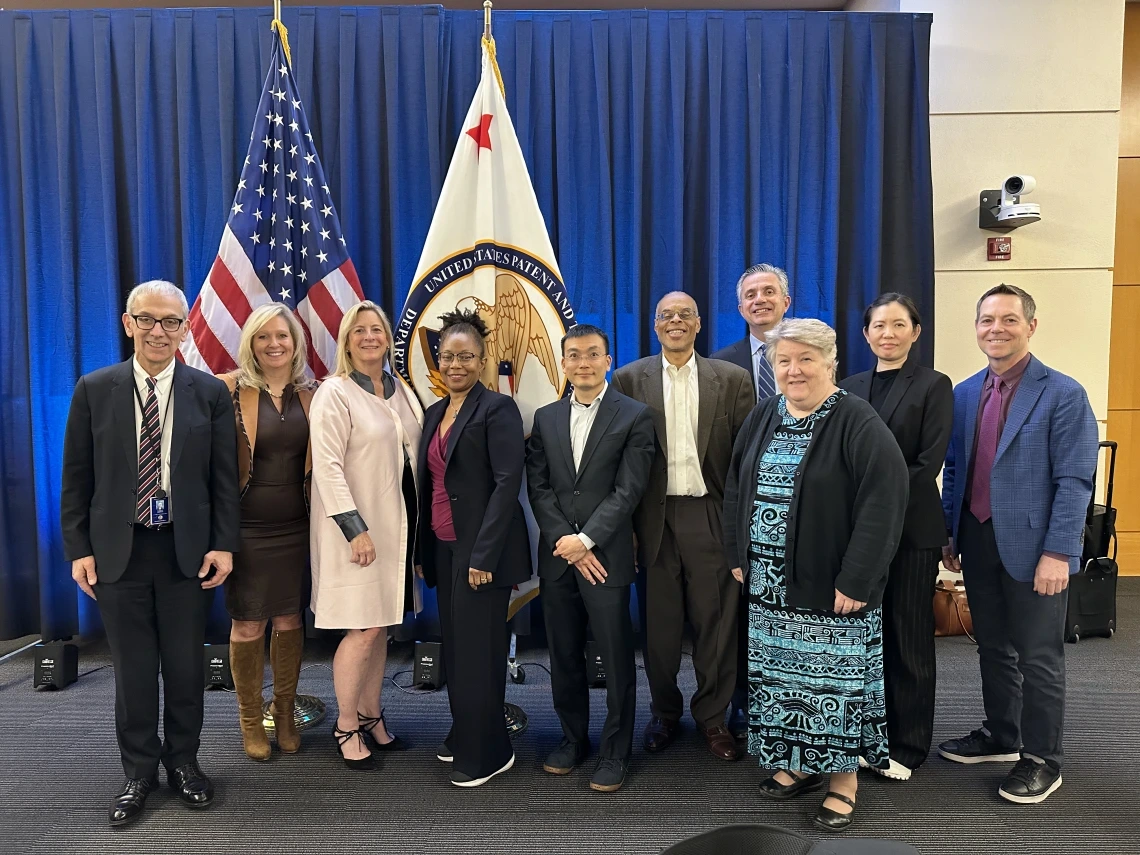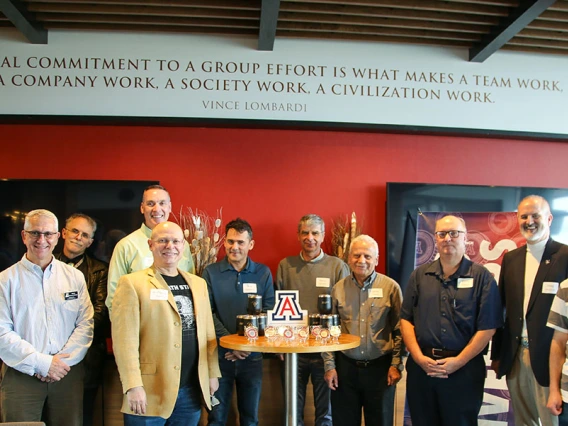Regents Professor leads federal examination of artificial intelligence implications for patents
Marvin Slepian completes his first year on patent office committee.

Marvin Slepian (left) meets with fellow PPAC members in Washington, D.C.
Each year, the Patent Public Advisory Committee of the United States Patent and Trademark Office submits its annual report to the president, the Secretary of Commerce, and the Senate and House of Representatives. For the 2024 report, completed in November, Dr. Marvin Slepian led a group in writing a section assessing the applicability of artificial intelligence for inventions and patents.
Slepian, Regents Professor of medicine and biomedical engineering, began a three-year term on the PPAC Committee in December 2023. He is a named inventor on upwards of 160 issued and pending patents and was inducted into the National Academy of Inventors as a fellow in 2019.
Tomás Díaz de la Rubia, senior vice president of research and innovation for the U of A, said Slepian’s PPAC role underscores the university’s commitment to lead policy-setting efforts for AI and leverage its practical applications.
“The report’s focus on AI as a transformative tool highlights the potential to accelerate invention, enhance economic stability, and foster entrepreneurial growth,” said Díaz de la Rubia.
Current and future themes
Slepian and his collaborators outlined how AI will impact the patent landscape in areas including its ability to contribute to the process of invention and as the subject matter for invention. These topics continue to spark debates about what kinds of inventions are patentable.
In the past year, the USPTO issued specific AI guidance for inventors and patent professionals. Under the law, natural phenomena – such as the mathematics on which AI is based – at face value may not be patentable. However, if AI is a component of an invention and substantially contributes in a novel way to its function, it may indeed be patentable.
“The area is evolving,” Slepian said, “and we’ll develop greater clarity in the future.”
Finally, the report outlines the important area of the use of artificial intelligence for enterprise management. As a focus of research, development, and commercial industry, AI exploded in recent years, affecting all fields from academics to health care to business.
Read the full story at Tech Launch Arizona News


